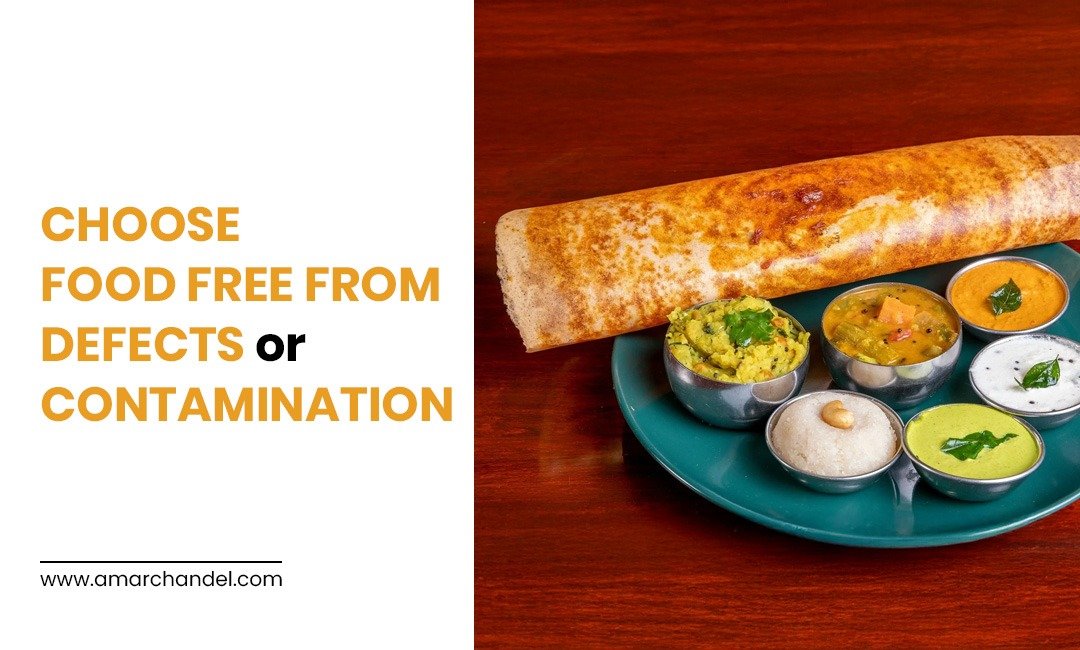“Āhāre vigata-doṣam seveta”
(Choose food free from defects or contamination.)
Source: Charaka Samhita, Sutrasthana 27.5
This instructive verse emphasises the importance of selecting foods that are free from defects or contamination. In Ayurvedic philosophy, the quality of food directly influences an individual’s health and well-being. Consuming pure and uncontaminated food is considered essential for maintaining the balance of the body’s doshas (biological energies) and ensuring overall vitality.
Understanding the Components
Āhāre (Food)
• Definition: Refers to the substances consumed to nourish the body, including solids and liquids.
• Significance: In Ayurveda, food is not only a source of sustenance but also a means to maintain harmony within the body and with the environment.
Vigata-doṣam (Free from Defects or Contamination)
• Definition: Indicates the absence of impurities, pollutants, pathogens, or any harmful substances in food.
• Significance: Consuming contaminated or defective food can lead to various health issues, including digestive disturbances, accumulation of toxins (ama), and imbalance of doshas.
Seveta (Should Be Consumed)
• Definition: Implies that one should make a conscious choice to consume such pure foods.
• Significance: It is a directive towards mindful eating practices, emphasising the proactive selection of quality food for health maintenance.

Relevance in the Present-Day Context
In today’s world, the principle of consuming uncontaminated food is increasingly pertinent due to several factors:
• Industrial Agriculture: The extensive use of pesticides, fertilisers, and genetically modified organisms (GMOs) raises concerns about chemical residues in food.
• Food Processing: Additives, preservatives, and artificial flavourings in processed foods may introduce harmful substances.
• Environmental Pollution: Contaminants from air, water, and soil can infiltrate the food supply chain.
• Foodborne Illnesses: The globalisation of food distribution has increased the risk of exposure to pathogens due to lapses in hygiene and handling standards.
Implications for Modern Living:
• Health Risks: Consumption of contaminated food is linked to various health issues, including gastrointestinal diseases, allergic reactions, and long-term chronic conditions.
• Nutritional Degradation: Defective or adulterated foods may lack essential nutrients, leading to deficiencies and weakened immunity.
• Ethical and Environmental Concerns: Unsustainable farming and processing practices not only compromise food quality but also harm the ecosystem.
Practical Guidelines for Ensuring Food Purity
To align with the Ayurvedic principle of consuming defect-free food, consider the following practices:
• Source Verification: Choose organic and locally sourced produce to minimise exposure to pesticides and ensure freshness.
• Proper Storage: Store food appropriately to prevent spoilage and contamination.
• Thorough Cleaning: Wash fruits, vegetables, and grains meticulously to remove dirt, microbes, and chemical residues.
• Mindful Preparation: Use clean utensils and cooking methods that preserve the nutritional integrity of your food.
• Avoid Processed Foods: Limit intake of heavily processed items that may contain additives and preservatives.
Holistic Healing and Your Teachings
Our Holistic philosophy resonates deeply with this Ayurvedic tenet. By advocating for:
• Natural Diets: Encouraging the consumption of whole, unprocessed foods that are naturally free from contaminants.
• Mindful Eating: Promoting awareness of food sources, preparation methods, and the body’s responses to different foods.
• Sustainable Practices: Supporting agricultural and culinary practices that honour the environment and human health.
We guide individuals towards dietary choices that uphold purity, enhance well-being, and foster a harmonious relationship with nature.
Conclusion
The wisdom encapsulated in this verse from the Charaka Samhita serves as a timeless reminder of the profound connection between food purity and health. In an era where food contamination poses significant challenges, consciously choosing and preparing foods free from defects is essential for maintaining physical, mental, and spiritual well-being. Embracing this principle enables individuals to make informed dietary choices, resulting in a balanced and harmonious life.


Give a Reply